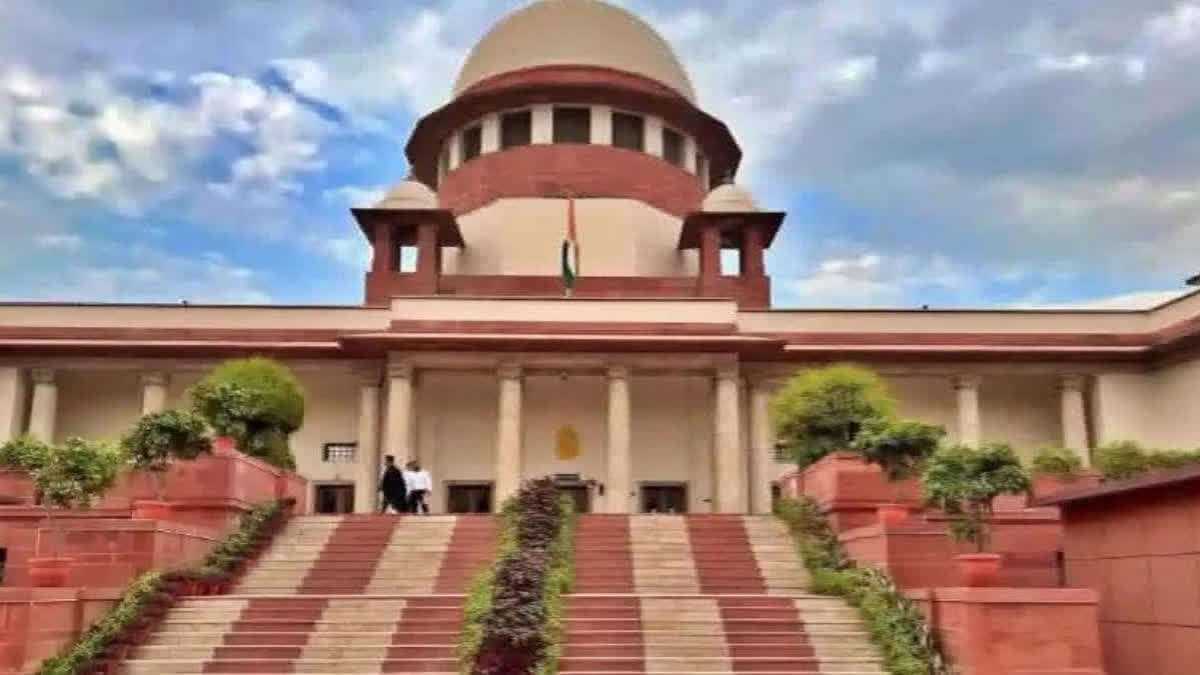New Delhi: The Supreme Court on Wednesday reserved its order on the issue of whether royalty levied by the Centre on mines and mineral-bearing lands since 1989 will be refunded to the states.
In a significant verdict on July 25, a nine-judge Constitution bench headed by Chief Justice D Y Chandrachud, by a majority 8:1 verdict, had held that the legislative power to tax mineral rights vests with the states and the royalty paid on minerals is not a tax.
The verdict, which gave a huge revenue boost to mineral-rich states, however, led to another dispute with regard to the operation of the verdict.
A nine-judge Constitution bench headed by Chief Justice DY Chandrachud reserved its verdict after hearing the arguments of the Centre, states and mining companies on whether its July 25 verdict giving states legislative competence to impose a tax on mineral wealth will have a prospective or retrospective effect.
The bench also comprising Justices Hrishikesh Roy, Abhay S Oka, JB Pardiwala, Manoj Misra, Ujjal Bhuyan, Satish Chandra Sharma and Augustine George Masih was told by Solicitor General Tushar Mehta, appearing for the Centre that making the July 25 verdict retrospective will have cascading effects on a common person as companies will pass on the financial burden on them.
The Centre opposed the plea of the mineral-rich states seeking a refund of the royalty levied by it on mines and mineral-bearing land since 1989, saying any such order asking it to pay the alleged dues with retrospective effect will have a "multipolar impact.
Senior advocate Rakesh Dwivedi, appearing for the Jharkhand Mineral Development Authority, urged the court to make the July 25 verdict retrospective and direct for refund of the royalty in a staggered manner. Some opposition-ruled mineral-bearing states urged the top court to make the verdict operational with retrospective effect so that they can seek a refund of royalty from the Centre.
However, the Centre opposes any such order saying it will have a "multipolar impact. Many firms involved in mining activities also support the Centre's view on refund of royalties to mineral-bearing states. The Solicitor General said states like Madhya Pradesh and Rajasthan, which are ruled by the BJP, wanted the judgement to be made applicable prospectively.
The BJP-ruled Odisha government did not take any clear stand despite being prodded by the bench and the counsel appearing for the state only said they don't want the exchequer to feel the burden.
The 200-page majority verdict was penned by the CJI for himself and on behalf of the bench said, "Royalty is not a tax. Royalty is a contractual consideration paid by the mining lessee to the lessor for the enjoyment of mineral rights. The liability to pay royalty arises out of the contractual conditions of the mining lease. The payments made to the government cannot be deemed to be a tax merely because the statute provides for their recovery as arrears."
However, Justice B V Nagarathna had dissented and said the Centre has the power to levy royalty.



